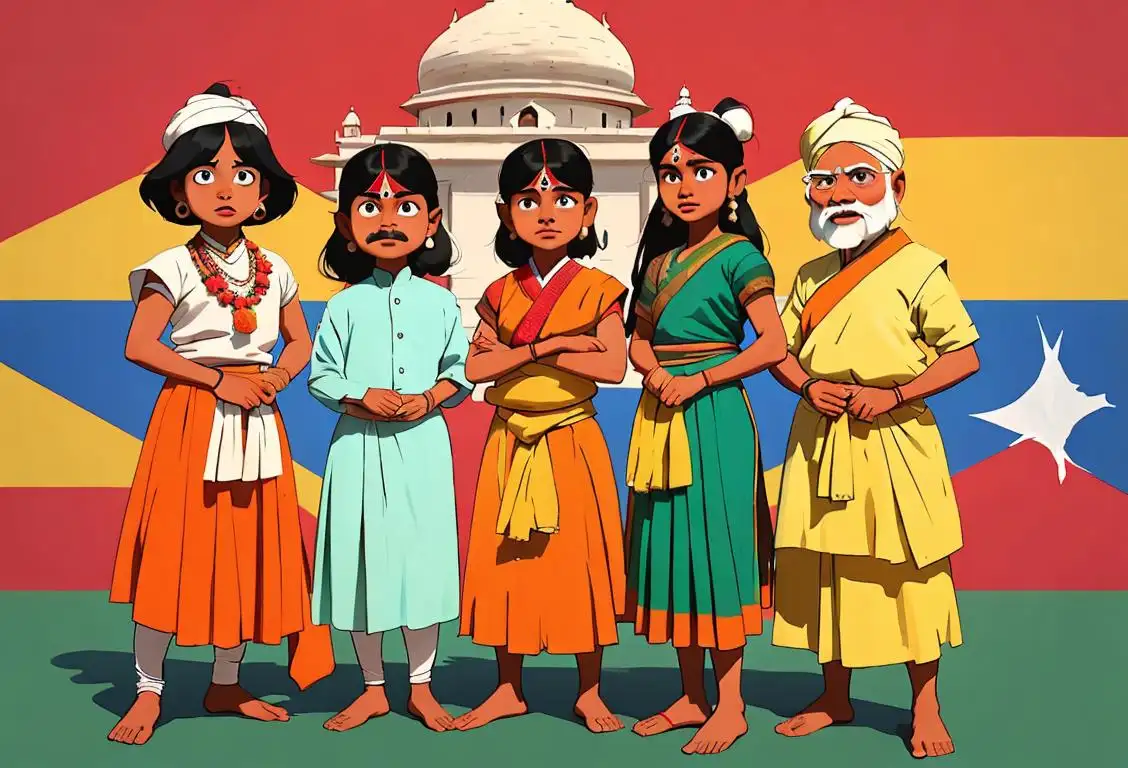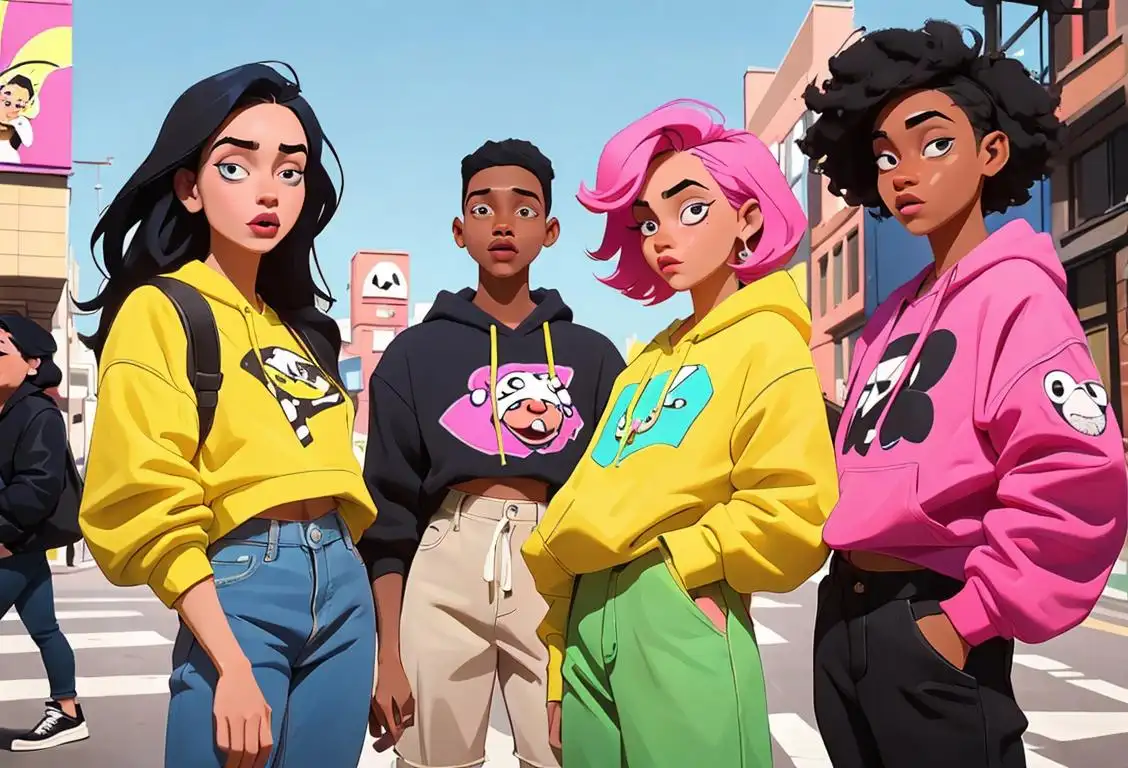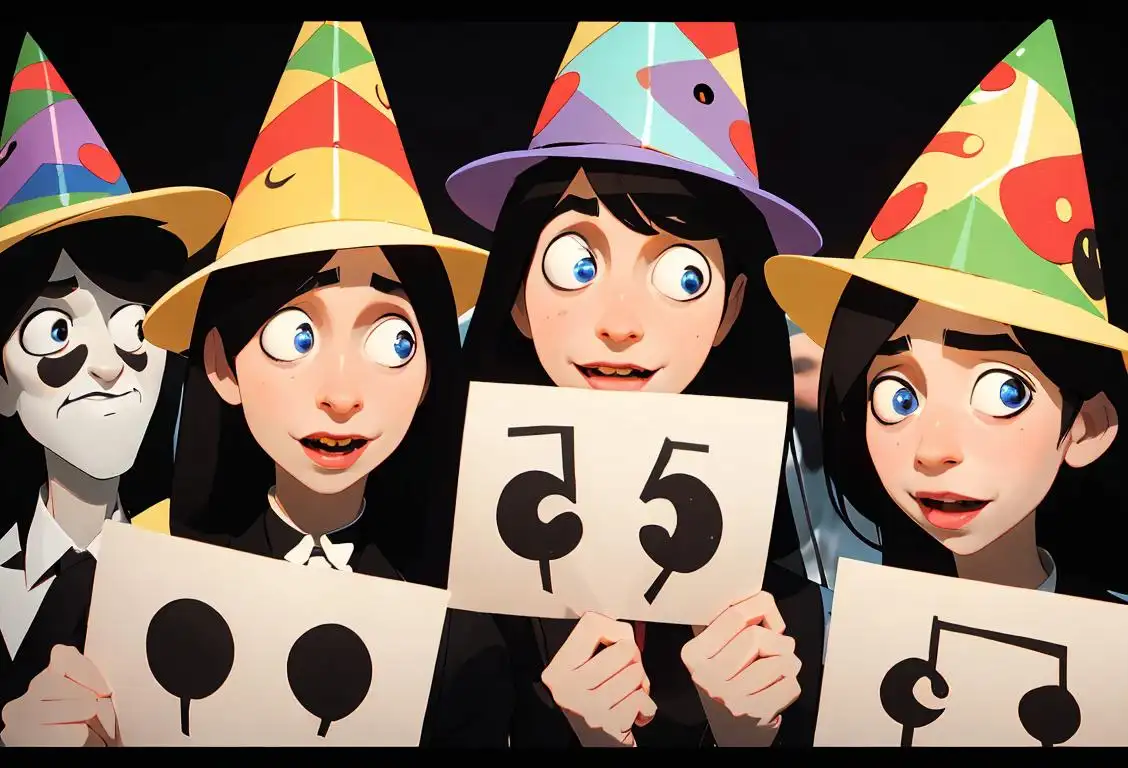National Cursing Day

Well, darn tootin', do you know what day it is? It's National Cursing Day, the one day a year where you can throw caution to the wind and say exactly what's on your mind. Let's explore the wild, wacky, and sometimes a tad cheeky history of this day!
When is Cursing Day?
It's national cursing day on the 9th November.
The Colourful History of National Cursing Day
Swearing, cursing, cussing - whatever you call it, there's no denying we all engage in this expressive form of speech. The internet history of National Cursing Day goes back to its peak relevance - 09 Nov 2015. With a sizzling 97 online mentions, the day sparkled and zoomed across the social media and internet universe like a colourfully worded comet.
The Purpose of this Uncensored Day
Don't let the name 'cursing' fool you. This day isn't about causing havoc or burdening others with bad karma. Nope, it's about releasing all that pent-up tension featuring words that are often looked down upon. The idea is to use these words, presumably with discretion, to express the pile of emotions that a simple adjective can't even begin to cover.
Nov 9, 2015 - Cursingday.com, a Day on Everyone's Lips
Nov 9, 2015, was a day to remember. The fateful time when cursingday.com was buzzing like flu in winter! While no grand parades were held or speeches given, this day encouraged individuals to stay true to their feelings, express themselves unapologetically, and have a chuckling good time.
Inject Some Fun into National Cursing Day
Remember that the point of this day is to let loose and have fun - not antagonize your neighbors or be the lump of coal at your workplace. So, throw in a couple of harmless, colourful phrases while talking to your buddies or narrating a knee-slapping anecdote. You're sure to leave everyone around you in splits!
History behind the term 'Cursing'
14th century
Origins in Old French
The term 'cursing' has its roots in Old French, where it was derived from the word 'curuz', meaning 'excommunication' or 'anathema'. In the 14th century, it primarily referred to the act of pronouncing a formal curse or banishment as a religious or legal punishment.
16th century
Evolution into Profanity
By the 16th century, the meaning of 'cursing' expanded beyond its religious and legal contexts. It began to encompass the use of offensive and blasphemous language to express anger, frustration, or to denounce someone or something. The term became associated with profanity and vulgar language.
19th century
Censorship and Taboo
During the 19th century, as societal values and norms evolved, cursing came to be seen as offensive and inappropriate in many circles. The use of curse words was often considered taboo and could be met with censorship or social disapproval. This period marked a significant shift in the cultural perception of cursing.
20th century
Cursing in Pop Culture
In the 20th century, cursing gained prevalence in popular culture, particularly in movies, music, and literature. The boundaries of acceptability began to blur, and profanity became more commonly used and accepted in certain contexts. Filmmakers, musicians, and authors started exploring the use of curse words for artistic expression and shock value.
21st century
Cursing in Digital Communication
With the rise of the internet and digital communication, the use of cursing has become even more widespread. Social media platforms, instant messaging, and online forums have created new spaces for the casual exchange of profanity. The frequency and ease of cursing in online interactions have challenged traditional notions of appropriateness and etiquette.
Did you know?
Did you know the average person swears roughly 80 to 90 times a day? That's a whole lot of colorful language!Tagged
awareness fun humour culture language communication expressive speech unapologetic stress relieverFirst identified
11th June 2015Most mentioned on
9th November 2015Total mentions
97Other days
Cursing Day
Language In India One Day
Asl Day
White Girl Appreciation Day
Fake Friend Day
Slang Day
Eat What You Want Day
Talk Like A Pirate Day
Goth Day
Punctuation Day








